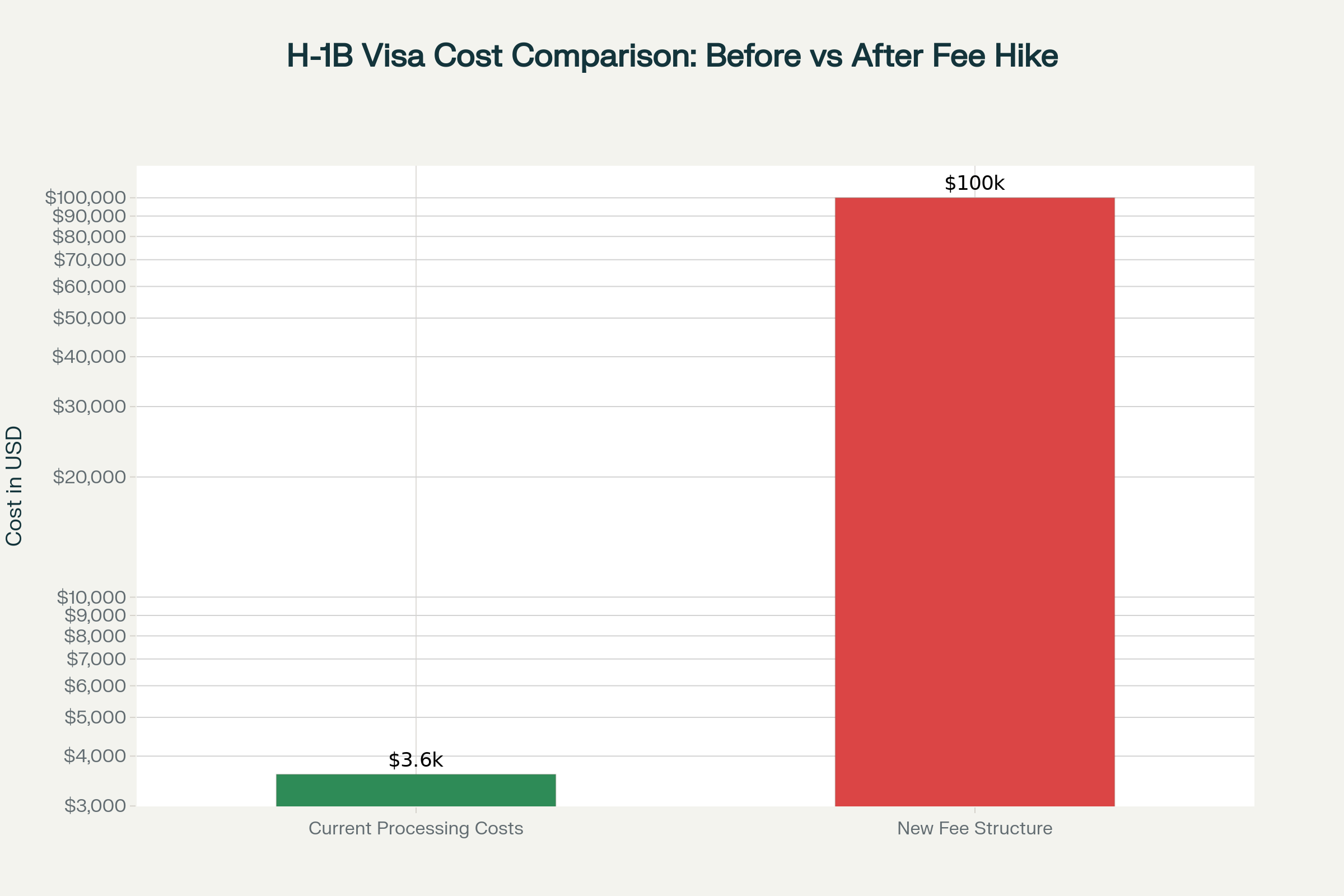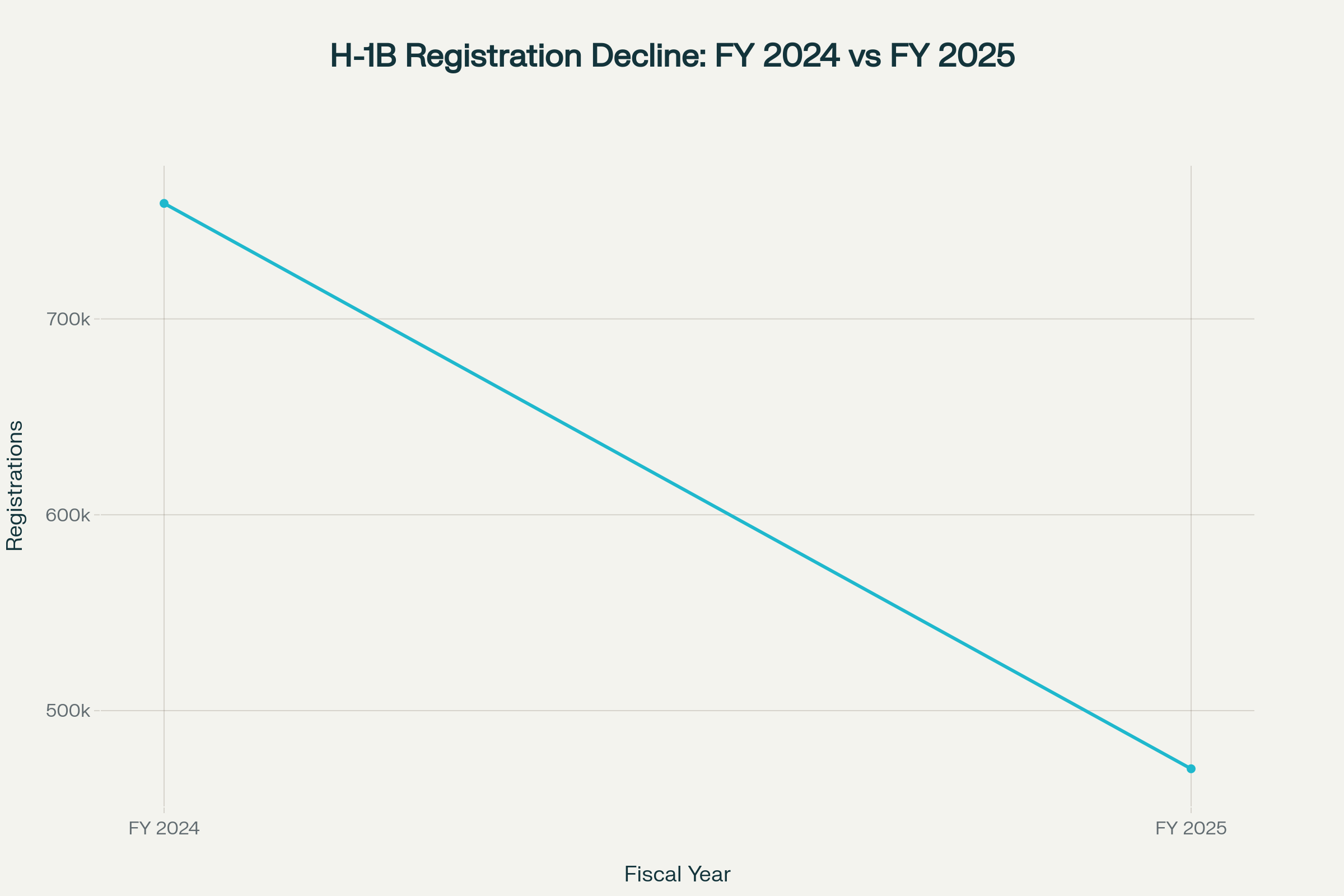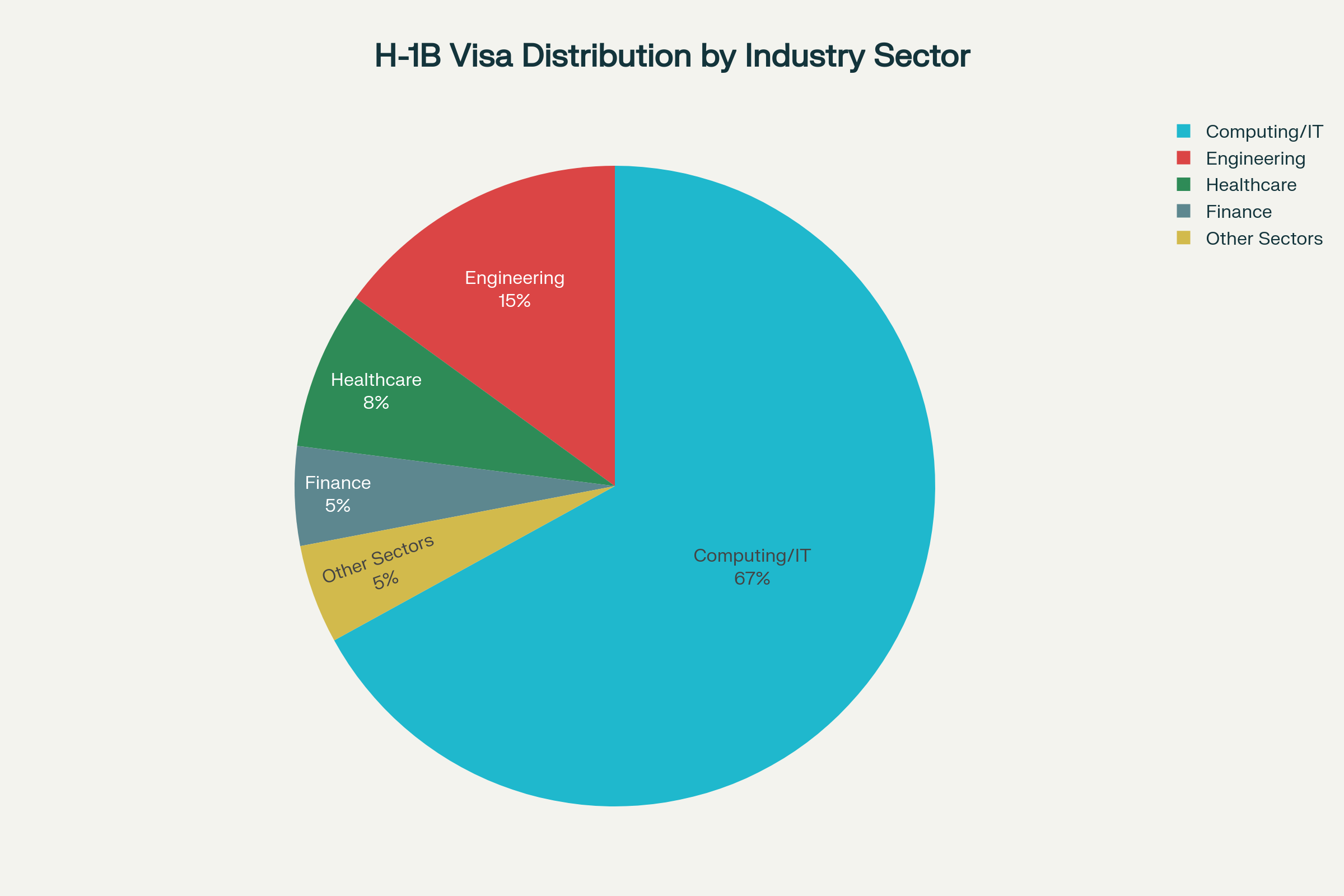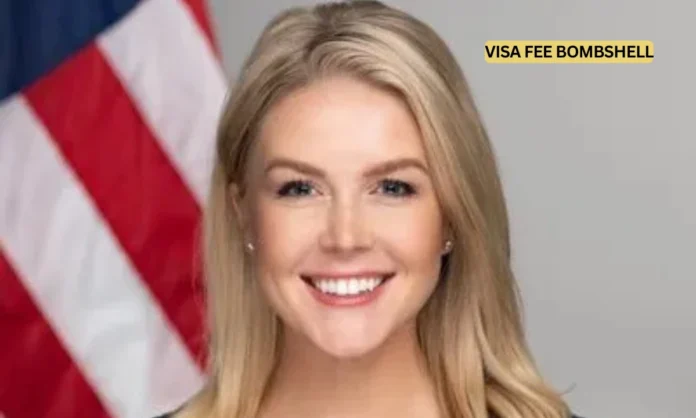Key Highlights:
- White House Press Secretary Karoline Leavitt claims H-1B visa system has been “spammed with fraud” driving down American wages
- US Chamber of Commerce and multiple coalitions file federal lawsuits challenging the $100,000 H-1B visa fee hike as unlawful
- Trump’s H-1B visa fee hike represents nearly 30-fold increase from current processing costs of approximately $3,600
Opening Overview
The Trump administration’s controversial $100,000 H-1B visa fee hike faces mounting legal challenges as the White House doubles down on defending the policy amid widespread industry opposition. Press Secretary Karoline Leavitt on Thursday asserted that the H-1B visa fee hike serves as a necessary measure to combat systemic fraud that has allegedly undermined American workers’ wages and employment opportunities. The administration’s H-1B visa fee hike policy, implemented through a September 2025 presidential proclamation, has sparked fierce legal battles with business groups arguing the measure violates federal immigration law. As multiple federal courts prepare to hear challenges to the H-1B visa fee hike, the controversy highlights deep divisions over skilled immigration policy and its impact on American competitiveness.

H-1B visa processing costs show dramatic 30-fold increase under Trump administration’s new policy
White House Justification for H-1B Visa Fee Hike Policy
- Administration claims H-1B system exploited by companies to replace American workers with lower-paid foreign labor
- White House cites fraud prevention as primary justification for implementing the H-1B visa fee hike
The Trump administration’s defense of its H-1B visa fee hike centers on allegations of widespread program abuse that has allegedly harmed American workers across technology sectors. According to White House officials, the H1B visa fee hike addresses concerns that the program “has been spammed with fraud, and that’s driven down American wages” as stated by Press Secretary Leavitt. White House officials argue the H-1B visa fee hike will force companies to prioritize hiring American workers over foreign alternatives, particularly in information technology fields where foreign worker participation has grown significantly.
📰 NEW @Bloomberg: Trump to Add New $100,000 Fee for H-1B Visas in Latest Crackdown. pic.twitter.com/drLaWNqE4s
— The White House (@WhiteHouse) September 19, 2025
The administration’s justification for the H-1B visa fee hike includes claims that companies have manipulated the system to provide employers with significant cost savings compared to hiring American workers. Officials supporting the H-1B visa fee hike point to concerns that the program, originally designed in 1990 to fill targeted labor gaps, has been misused in ways that disadvantage qualified US professionals. The H1B visa fee hike policy specifically targets what the administration describes as systematic abuse by companies using visas primarily in the tech industry, which has pointed to a shortage of professionals with science, math, and computer skills.

H-1B visa registrations dropped significantly from 758,994 to 470,342 between fiscal years 2024 and 2025
Legal Challenges Mount Against H-1B Visa Fee Hike Implementation
- US Chamber of Commerce files federal lawsuit arguing H-1B visa fee hike violates Immigration and Nationality Act
- Coalition of unions, employers, and religious groups challenge H-1B visa fee hike as “arbitrary and capricious”
The US Chamber of Commerce has emerged as the leading challenger to the H-1B visa fee hike, filing a comprehensive federal lawsuit in Washington DC on October 16 that seeks to block implementation of the new policy. The Chamber’s legal challenge to the H1B visa fee hike argues that the fee violates the Immigration and Nationality Act, which mandates that visa fees reflect actual government processing costs rather than serving as a deterrent mechanism. According to court filings, the Chamber contends the H1B visa fee hike exceeds the president’s lawful authority and represents a “misguided policy and plainly unlawful” measure.
Neil Bradley, Executive Vice President of the US Chamber of Commerce, warned that the H-1B visa fee hike “will make it cost-prohibitive for US employers, especially start-ups and small and midsize businesses, to utilize the H-1B program”. The Chamber’s opposition to the H-1B visa fee hike emphasizes that Congress created the program specifically to ensure American businesses can access global talent needed for domestic growth and innovation. Additional legal challenges to the H1B visa fee hike have been filed by diverse coalitions including unions, employers, and religious organizations, with cases pending in multiple federal courts. These multiple lawsuits against the H-1B visa fee hike represent the most significant legal opposition to skilled immigration policy changes in recent years.
Economic Impact and Industry Response to H-1B Visa Fee Hike
- Major corporations including Walmart pause H-1B hiring following the H-1B visa fee hike announcement
- Tech giants including Amazon, Microsoft, and Google expected to be significantly affected by H-1B visa fee hike
The economic implications of the H-1B visa fee hike extend far beyond individual companies, with major employers already adjusting their hiring practices in response to the policy. Walmart has reportedly paused hiring H-1B candidates following the H-1B visa fee hike announcement, adding to confusion that has beset employers and H-1B holders since the change was announced. The dramatic increase from current H-1B processing fees of a few thousand dollars to the new $100,000 H1B visa fee hike represents a steep financial burden that could fundamentally alter hiring practices across multiple sectors.
Major technology companies that have historically relied on H-1B programs face substantial financial impacts from the H-1B visa fee hike, with firms like Amazon, Microsoft, and Google among those expected to reassess their foreign talent acquisition strategies. The H1B visa fee hike particularly affects Indian IT professionals, who comprise approximately 71% of all approved H-1B applications according to USCIS data, making them the largest group impacted by this policy change.
Recent clarifications indicate the H1B visa fee hike will not apply to current visa holders or those transitioning from student status, potentially creating a two-tiered system that favors workers already in the United States. The policy uncertainty has led to widespread confusion among employers, visa holders, and immigration attorneys who are struggling to understand the full implications of the H-1B visa fee hike.

Computing and IT occupations account for approximately two-thirds of all H-1B visa positions
Healthcare Sector Concerns Over H-1B Visa Fee Hike Impact
- More than 50 healthcare organizations led by American Medical Association oppose H-1B visa fee hike
- One in five doctors in the US is of Indian descent, potentially affected by the H-1B visa fee hike policy
The healthcare sector has emerged as a major opponent of the H-1B visa fee hike, with medical professionals warning of devastating consequences for patient care across underserved communities. More than 50 organizations led by the American Medical Association wrote to Secretary of Homeland Security Kristi Noem, stressing that the H-1B visa fee hike could dissuade hospitals from employing foreign doctors, ultimately restricting patient access to care. The medical community’s opposition to the H1B visa fee hike stems from concerns that immigrant doctors, many from India, serve as the lifeline of the US healthcare system, especially in rural areas.
Dr. Jesse Ehrenfeld of the AMA, who is the first Indian-origin physician to lead the organization, warned that the H-1B visa fee hike would be “devastating” for health systems already struggling with staffing shortages. The healthcare sector’s concerns about the H1B visa fee hike are particularly acute given that one in five doctors in the US is of Indian descent, representing a substantial portion of the medical workforce.
While White House representatives indicated to Bloomberg that the H1B visa fee hike “allows for exemptions, can include physicians and medical residents,” the medical community points out a lack of evidence that healthcare workers have been formally exempted from the fee. The uncertainty surrounding the H-1B visa fee hike has created additional anxiety within the healthcare sector, which relies heavily on international medical graduates to staff hospitals and clinics nationwide.
Closing Assessment
The H-1B visa fee hike controversy represents a defining moment in American skilled immigration policy, with the Trump administration’s defense of the $100,000 charge setting the stage for prolonged legal battles that will determine the future of foreign talent acquisition. While the White House maintains that the H-1B visa fee hike addresses legitimate concerns about program abuse and wage suppression, business groups argue the policy will ultimately harm American competitiveness by restricting access to global talent.
The multiple federal lawsuits challenging the H1B visa fee hike reflect broader tensions between labor protection and economic growth that have long characterized immigration debates. As courts prepare to rule on the legality of the H1B visa fee hike, the outcome will likely influence not only immediate business practices but also long-term immigration policy frameworks affecting millions of skilled workers and American employers.


